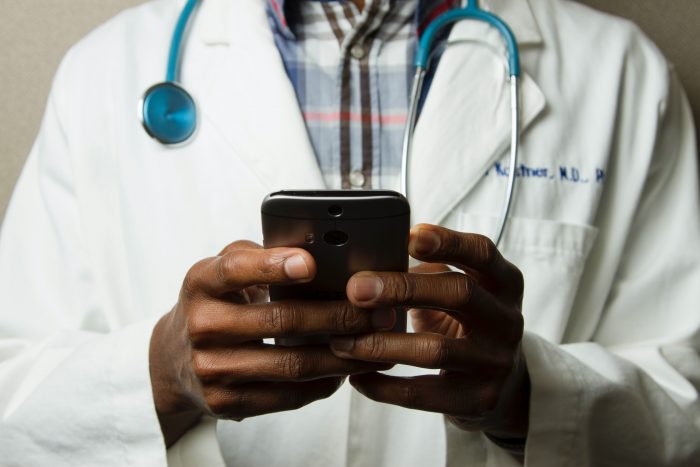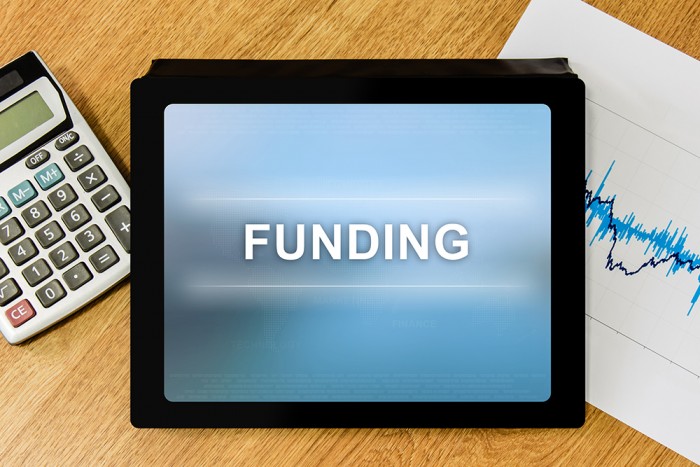Jim Sharp
Capitolwire: Counties Face Uncertainty on State Funding for Mental Health Services
Counties Face Uncertainty on State Funding for Mental Health Services
By Robert Swift
Capitolwire Staff Reporter
HARRISBURG (Aug. 2) — County officials face some uncertainty in running their basic mental health programs upon learning they get flat funding under the new state budget.
Getting a level amount of state aid means counties will have difficulty reducing waiting lists for services which are widespread, hiring to address staff shortages, and expanding services to meet various mental health needs, said Lisa Schaefer, executive director of the County Commissioners Association of Pennsylvania, on Tuesday.
“We are certainly disappointed,” she said. “There is certainly a lot of good increased funding could do.”
CCAP learned this week there is no increase in that line item as analysis continues with the Fiscal Year 2022/23 budget enacted early last month.
CCAP is part of a coalition that lobbied this year to end level state funding for basic county mental health services for the past 11 years. Gov. Tom Wolf proposed a $36.6 million increase to restore much of a decade-old cut in state aid to county-run mental health programs, but that didn’t make the final budget enacted last month.
Instead the budget provides an additional $53 million for assorted mental health-related needs, including the county programs and state-run hospitals.
“Counties can continue to get grants for mental health programs from the Department of Human Services under the Community Mental Health Services Block Grant (CMHSBG),” said DHS spokesman Brandon Cwalina.
“This funding supports counties in their planning and implementation of mobile crisis services, as well as crisis receiving and stabilization services, that meet national standards for crisis intervention services,” he said.
“It can also be used to support service expansion efforts that ensure a full continuum of community crisis intervention services for anyone regardless of insurer or ability to pay…” said Cwalina. “Counties have until 2025 to use the funds available through these CMHSBG grant allocations to continue the building of crisis mental health service infrastructures across the commonwealth.”
And the budget directs $100 million in unspent federal COVID relief funds for general mental health programs and an additional $100 million in COVID funds for school mental health grants.
The one-time funding comes after lawmakers of both parties said this year that more needs to be done to address mental health issues among Pennsylvanians.
Counties could get a share of that, but Schaefer said annual funding is needed to rebuild the counties network of mental health programs.
The $100 million for general mental health programs can’t be spent until a new special state commission meets and makes recommendations for to how to spend it the money and the Legislature passes enabling legislation.
Whether that happens during the remainder of Gov. Tom Wolf’s term or after a new governor takes office next January is uncertain.
The 24-member Behavioral Health Commission for Adult Mental Health is charged with considering funding for the following areas: telemedicine services, mental and behavioral payment parity, workforce development and retention, expansion of peer support services, crisis services, integration of behavioral support and substances abuse disorder treatment, cultural issues in providing behavioral health care, impact of health on behavioral health, intersection of behavioral health and the criminal justice system, and timely delivery of psychiatric care.
The commission composed of state officials and legislative appointees, is supposed to hold its first meeting by September and hold at least two meetings, one with rural care providers and law enforcement and one with urban or suburban providers and law enforcement.
Counties will have a representative on the commission who can advocate for funding, said Schaefer.
“The $100 million in ARPA funding and the grants available through the CMHSBG are a start, but further investment will be necessary to support growing behavioral health care needs,” said Cwalina. “The Wolf administration is encouraged by the General Assembly’s recognition of ongoing need through their establishment of the Behavioral Health Commission for Adult Mental Health, and we hope the recommendations adopted by the commission will be considered for future investments outside of ARPA funds.”
RCPA has been asked to be a part of the Behavioral Health Commission process and will continue its collective efforts with the Mental Health Safety Net Coalition to create sustainable pathways for all mental health funding platforms in Pennsylvania.
If you have any questions, please contact your RCPA Policy Director.
PCCD Opens School Mental Health & Safety and Security Grant Process
Windber Hospital Adds Early Intervention Therapy Program
Lakeside Offering Free Trauma Awareness Training
Seating is limited in this 15-hour intensive course that provides a rich and sophisticated exploration of the subject of trauma. Meeting every other week for 2.5 hours per session (6 sessions total), professionals are encouraged to become highly sensitive regarding the nature of trauma.
Participants will increase awareness and respect with regard to trauma-related behaviors and the consequences of being impacted by trauma that can extend into relationships, systems, and across generations.
Topics include:
- Personal Self-Care Plans
- Three-Part Diagram
- Kinds of Trauma
- Trauma Continuums
- Essential Brain Parts & Brain States
- Adverse Childhood Experiences Study
- Neurobiology of Toxic Stress
- Epigenetics
- Trauma Vortex
- Post-Traumatic Stress Disorders
- Grief and Trauma
- Memory and Trauma Triggers
- Risk & Protective Factors
- Vicarious & Secondary Traumatization
- Compassion Fatigue
Four cohorts will be facilitated live by two LGI trainers utilizing a web-based platform. Three cohorts will meet in-person in Philadelphia.
Visit here to view dates and times for each option.
Scholarships valued at $1,000 per person have been provided by generous funders. Participants are required to purchase two additional texts for reading and discussion throughout the course (estimated at $70). Once registered, additional details will be provided to participants so they can order these texts prior to the first session of the course. Visit here to reserve a seat today!
Telehealth Update: OMHSAS Verbal Consent Update — Federal Telehealth Bill Passes House

OCYF Releases 2021 PA Child Abuse Report
The Office of Children, Youth, & Families (OCYF) has released the 2021 Pennsylvania Annual Child Abuse report. The report may be accessed here as well as through the Child Abuse Reports Page.
While the report continues to provide detailed data for statewide and individual county responses to reports, for the first time, race and ethnicity data was added for substantiated victims and perpetrators. OCYF in its reporting process will continue to refine this information for future reports and have only presented statewide data and not county by county statistics to avoid providing individually identifiable information.
If you have any questions, please contact RCPA Children’s Policy Director Jim Sharp.
House Prepares To Extend Telehealth Waivers 2 Years, ATA Seeks Bill Tweaks
Recognizing the Impact of Race, Racism, and Inequity on Mental Health
Message from the Department of Human Services (DHS):
Mental health conditions can impact all individuals, regardless of race, ethnicity, gender, ability, class, sexual orientation, or other social identities. However, systemic racism, implicit and explicit bias, and other circumstances that make individuals vulnerable can also make access to mental health treatment much more difficult.
Mental health care is important to a person’s overall wellbeing. Mental health conditions are treatable and often preventable. Yet many people from historically marginalized groups face obstacles in accessing needed care. These obstacles, which have only been made worse by the COVID-19 pandemic, may include lack of or insufficient health insurance, lack of racial and ethnic diversity among mental health care providers, lack of culturally competent providers, financial strain, discrimination, and stigma. Moreover, immigration status, economic conditions, education levels, and access to public health benefits are just a few differences that can adversely impact people’s experiences when seeking mental health care.
Since 2008, July has been designated as National Minority Mental Health Awareness Month, a time to acknowledge and explore issues concerning mental health within minority communities and to destigmatize mental illness and enhance public awareness of mental illness among affected minority groups across the nation.
Taking on the challenges of mental health takes all of us.
All of society benefits when all people have access to mental health care, supportive social conditions, freedom from stressors that can compromise mental health, and access to other resources needed for health. We all have a role to play in promoting health equity.
Learn more about Minority Mental Health Month:
- Bebe Moore Campbell National Minority Mental Health Awareness Month — NAMI
- National Minority Mental Health Awareness Month — U.S. Dept. Health and Human Service Office of Minority Health
- BIPOC Mental Health Month — Mental Health America
What is Mental Health Equity?
Mental health equity exists when everyone has a fair and just opportunity to reach their highest level of mental health and emotional wellbeing.
Mental health disparities are defined as unfair differences in access to or quality of mental health care according to race and ethnicity. Disparities can take on many forms, are quite common, and are preventable. They can mean unequal access to good providers, differences in insurance coverage, or discrimination by doctors or nurses.
Mental Health Equity Statistics
- 1 in 5 U.S. adults experience mental illness each year
- 1 in 20 U.S. adults experience serious mental illness each year
- 1 in 6 U.S. youth aged 6–17 experience a mental health disorder each year
- 50 percent of all lifetime mental illness begins by age 14, and 75 percent by age 24
- Suicide is the second leading cause of death among people aged 10–34
RCPA Member Devereux Pennsylvania Invests in Technology and Fitness

















